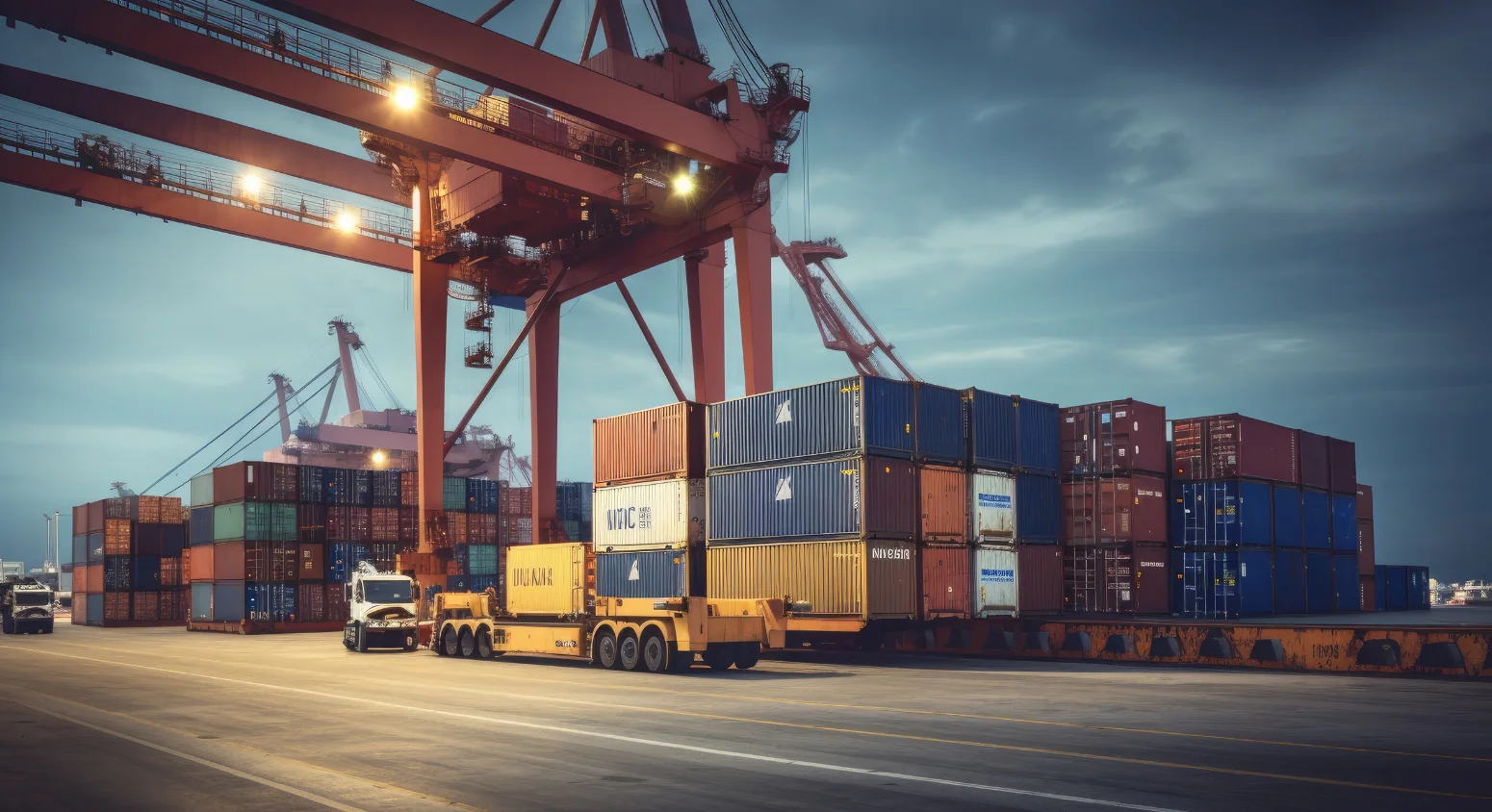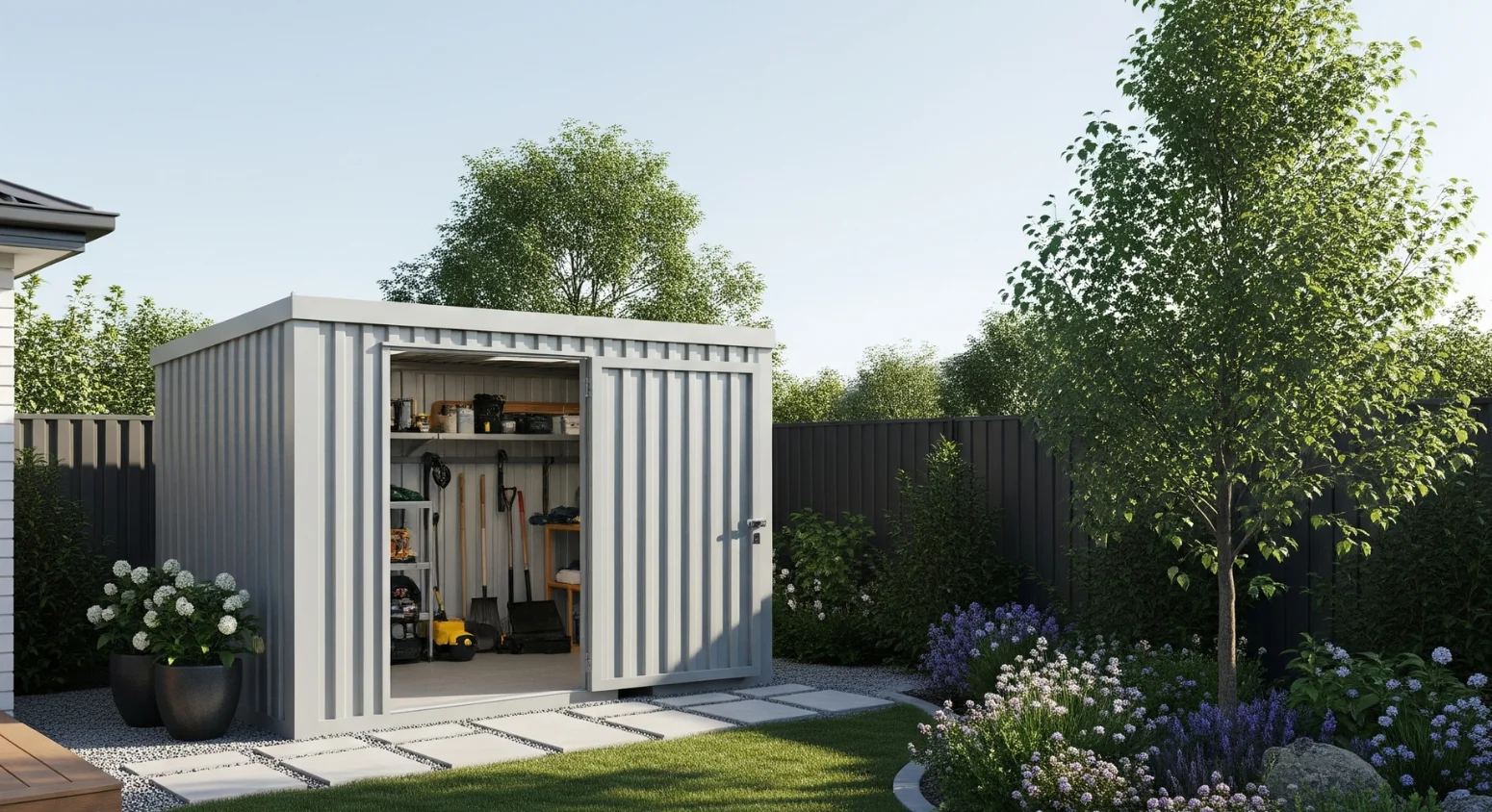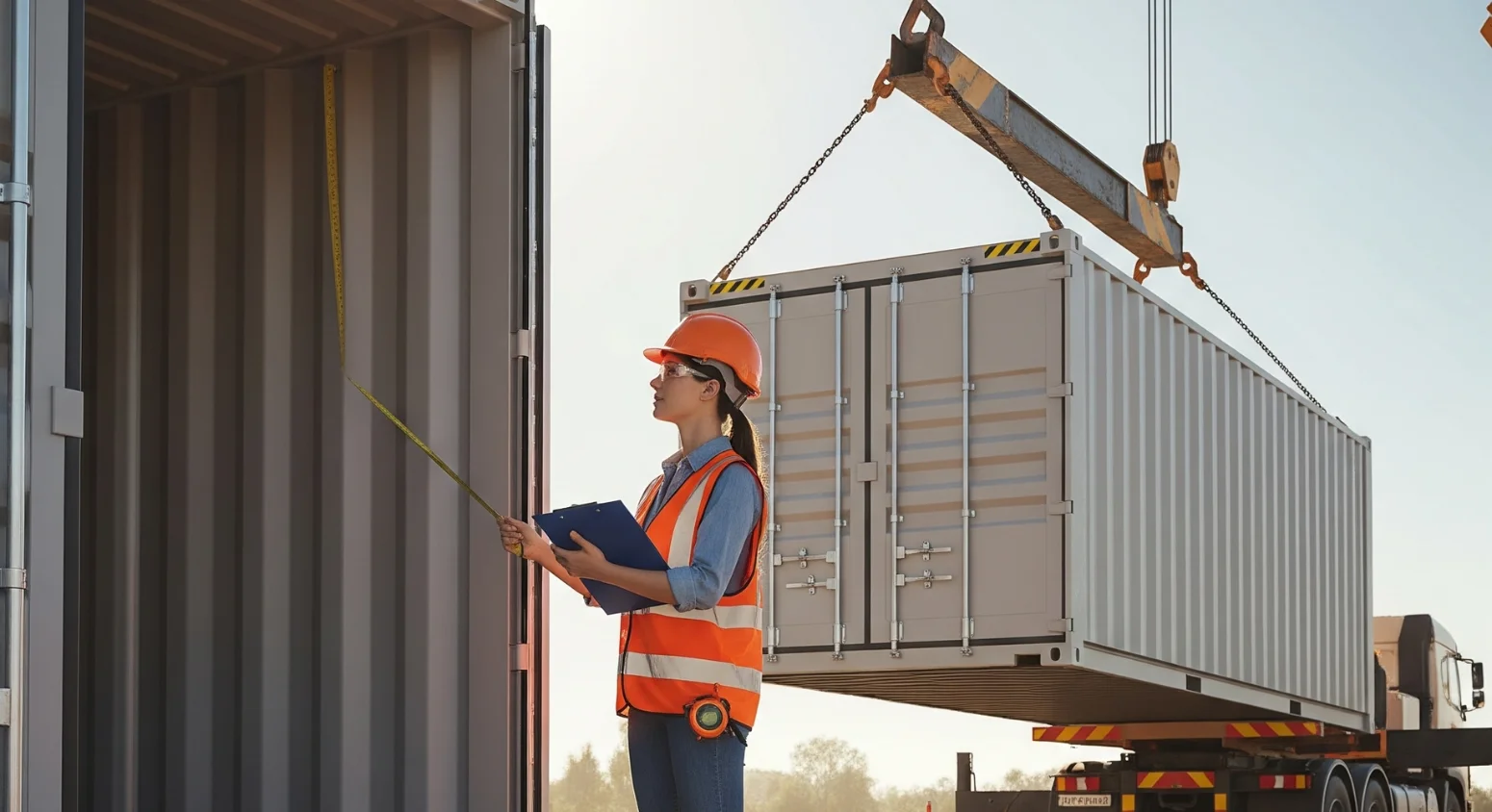Have you ever stopped to think if your container loading dock is really working the best way it can? Whether you run a busy warehouse or handle shipping every day, the type of container dock you use can make a big difference. The right loading dock helps things move faster, keeps everyone safe, and can even save you money.
In this blog, we’ll take a close look at different kinds of container loading docks and some useful alternatives. You’ll learn what makes each type special and how to pick the one that fits your space and budget. Whether you have lots of room or just a tight spot, knowing your options can make your work easier.
By the time you finish reading, you’ll understand which loading dock setup works best for you and how new ideas are changing the way things get loaded and unloaded. Let’s dive in and find the best container dock for your needs!
Table of Contents
Overview of Container Loading Docks
Have you ever wondered why the type of container loading dock you use matters so much? A container loading dock is the place where trucks and containers meet your warehouse or storage area. It’s where goods get loaded and unloaded, and the right kind of dock can make a big difference in how well everything runs.
Why is choosing the right container dock important?
- Speed: A good dock helps trucks load and unload faster, so nothing gets held up.
- Safety: The right dock keeps workers safe by making it easier to move heavy items without accidents.
- Space: Not every warehouse has the same space, so the dock has to fit the area you have.
Here are some simple things to think about when picking a container loading dock:
- Height: Is the dock at the same level as the truck? If it is, forklifts can move things easily. If not, you might need ramps or lifts.
- Traffic: How many trucks come and go? Some docks let trucks drive all the way through to avoid blocking each other.
- Size of Cargo: Are you loading regular-sized containers or something bigger? Your dock needs to handle whatever you’re moving safely.
- Weather: Do you need a covered dock to keep goods and workers safe from rain or sun?
Knowing these basics helps you pick the right container dock type for your business. In the next parts, we’ll look at the most common kinds of docks and some smart alternatives that could work better for you.
Picking the right dock means things will move faster, be safer, and your whole operation will run more smoothly.
Common Types of Container Loading Docks
There are several types of container loading docks, and knowing about them can help you pick the one that works best for your business. Each type has its own strengths, so understanding the differences can save you time and make your work easier. Let’s look at some of the most common container dock types.
1. Raised Platform Loading Docks
These docks are higher off the ground and line up with the truck bed. This makes it easy to move containers with forklifts or pallet jacks because everything is on the same level.
Why choose raised docks?
- Load and unload faster
- Reduce strain on workers
- Great for busy warehouses with lots of trucks
2. Ground-Level Loading Docks
These docks sit right on the ground. Trucks back up to the dock area, and sometimes ramps or lifts are needed to move containers inside.
When ground-level docks work well:
- If you have limited space
- For smaller shipments or less busy loading
- They are usually cheaper to build
3. Drive-In and Drive-Through Docks
These docks are great if many trucks come and go. Drive-in docks let trucks back into a loading bay, while drive-through docks allow trucks to drive in one side and out the other without reversing.
Benefits of drive-in and drive-through docks:
- Cut down waiting time for trucks
- Keep traffic moving smoothly
- Perfect for busy places with lots of trucks
4. Pit Docks
Pit docks are set lower than the rest of the dock area. This helps forklifts load containers more easily when space is tight or when the building design requires it.
When to think about pit docks:
- If space above ground is limited
- To help workers lift more comfortably
- For special container handling needs
Knowing the common container dock types helps you choose the right one for your operation. Each has its own advantages depending on your space, budget, and how busy your loading area is.
Next, we’ll look at some alternative options that might give you more flexibility and make your loading process even smoother.
Innovative Alternatives to Traditional Loading Docks
Are you wondering if there’s a better way to handle container loading beyond the usual dock setups? Sometimes, traditional container loading dock types just don’t fit the bill—whether because of space limits, budget concerns, or the need for more flexibility. Luckily, there are several smart container loading dock alternatives that might work better for your operation.
Let’s take a look at some popular options:
1. Mobile Loading Docks
Mobile loading docks are movable platforms that you can position wherever you need. They’re perfect if your loading needs change frequently or if you don’t have a fixed dock area.
Why choose mobile docks?
- Easy to move and adjust
- Cost-effective for smaller operations
- Great for temporary or seasonal loading tasks
2. Portable Dock Ramps
Portable dock ramps offer a simple solution when you don’t have a permanent dock. These ramps can be set up quickly to bridge the gap between the truck and ground or loading area.
Benefits of portable ramps:
- Quick to set up and take down
- Lightweight and easy to store
- Ideal for businesses with limited space or occasional loading needs
3. Dock Levelers and Edge-of-Dock Solutions
If you already have a basic loading dock, adding dock levelers or edge-of-dock devices can improve flexibility. These tools adjust the height difference between the dock and truck, making loading safer and smoother.
Advantages include:
- Better fit for different truck heights
- Reduced risk of accidents
- Improves loading speed without major construction
4. Modular Dock Systems
Modular dock systems are made up of components you can mix and match to build a dock that fits your exact needs. They’re great if you want a scalable solution that can grow with your business.
Why modular docks?
- Easy to expand or reconfigure
- Customizable to your space and workflow
- Often quicker and cheaper to install than traditional docks
Choosing the right container loading dock alternative depends on your specific needs and challenges. Do you need something flexible? Are you working in a tight space? Or maybe you want to avoid the costs of building a permanent dock?
Exploring these alternatives can open up new ways to handle loading and unloading more efficiently.
Choosing the Right Dock Type for Your Operation
Now that you know about different container loading dock types and some great alternatives, the big question is: how do you choose the right one for your business? Picking the best container loading dock type isn’t just about what looks good or costs less upfront—it’s about finding the solution that fits your space, your workflow, and your budget, all while keeping safety a top priority.
Here are some key points to help you decide:
1. Think About Your Space
- How much room do you have for a loading dock?
- Is your loading area large enough for raised platforms, or would a ground-level or mobile dock work better?
- Do you have enough space for trucks to maneuver easily, or would a drive-through dock improve traffic flow?
2. Match the Dock to Your Cargo and Vehicles
- What size and type of containers do you usually handle?
- Do your trucks have varying heights that require adjustable dock levelers or edge-of-dock solutions?
- Will oversized or unusual shipments need special dock features like pit docks?
Also Read: How Container Lifting Jacks Can Simplify Loading Process?
3. Consider Your Budget and Long-Term Costs
- What is your initial budget for building or upgrading a dock?
- Have you factored in ongoing maintenance and potential downtime costs?
- Sometimes, investing a bit more upfront in a better dock can save money and headaches down the road.
4. Prioritize Safety and Worker Comfort
- Will the dock type reduce the risk of accidents?
- Does it allow workers to load and unload without strain or injury?
- Proper dock design can help you meet safety regulations and keep your team healthy.
5. Think About Flexibility and Growth
- Is your business growing or changing?
- Would modular or mobile docks offer the flexibility to adjust as your needs evolve?
- Choosing a dock that can adapt can save time and money later.
By carefully weighing these factors, you can pick a container loading dock type or alternative that fits your operation perfectly. Remember, the right dock doesn’t just make loading easier—it boosts your whole workflow and keeps your team safe.
Explore: Top Container Handling Equipment for All-Scale Operations
Conclusion
Choosing the right container loading dock or exploring smart container loading dock alternatives can feel overwhelming—but it doesn’t have to be. Have you thought about how much smoother your operations could run with the perfect dock setup? Whether it’s a traditional raised platform or a flexible mobile dock, the right container dock type can make all the difference in efficiency, safety, and cost savings.
Remember, your loading dock is more than just a space—it’s a key part of your supply chain. Taking the time to understand your options and match them to your unique needs will help you avoid common pitfalls and keep your business moving forward. So, what’s holding you back from upgrading your container loading dock today?
If you want your loading and unloading process to be faster, safer, and more adaptable, it’s time to take a closer look at your container loading dock setup and consider the alternatives that best fit your operation.
FAQs
1. What is the most common container loading dock type?
Raised platform loading docks are widely used because they align with truck beds, making loading and unloading quicker and safer.
2. Can I use a mobile loading dock instead of a permanent one?
Yes, mobile loading docks are great if you need flexibility or have space constraints. They’re easy to move and cost-effective for many operations.
3. How do I know if a ground-level dock is right for my business?
Ground-level docks work well if you have limited space or smaller shipment volumes. They often require ramps or lifts but are easier to install.
4. What should I consider when choosing a container loading dock alternative?
Look at your space, budget, traffic flow, and the types of containers you handle. Also, think about how flexible or permanent you want the solution to be.



